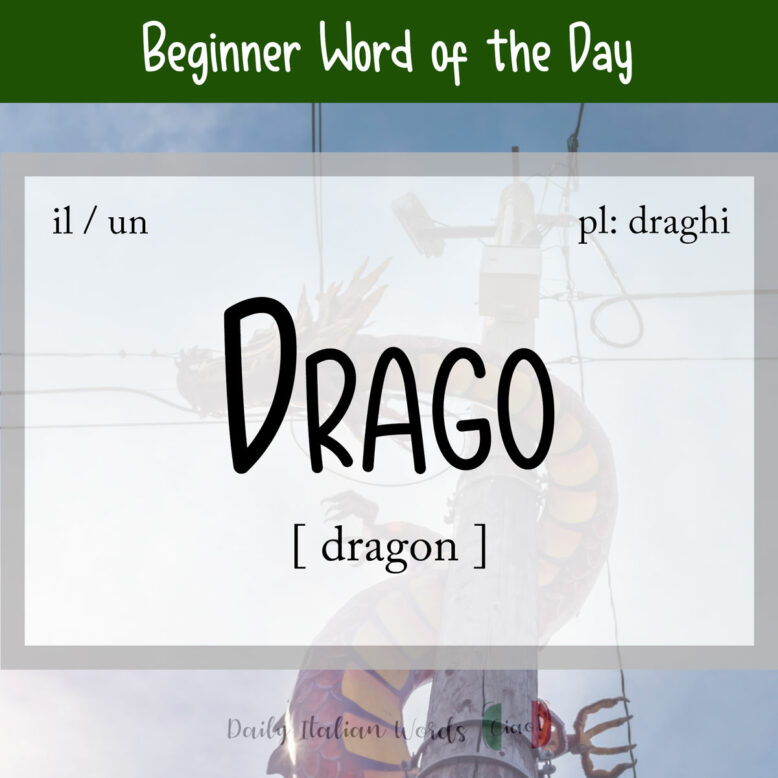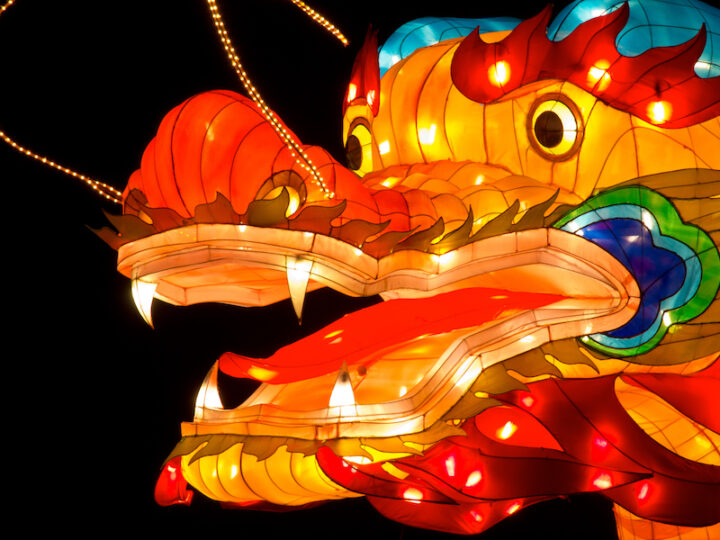The word for dragon in Italian is drago (masculine, plural: draghi). It comes from the Latin draco which in turn comes from the Greek drakon meaning serpent.

Note: Anglophone learners of Italian might be tempted to use the synonym dragone since it sounds closer to the English word but drago is the preferred term.
La lotta di San Giorgio contro il drago non è che una leggenda!
St. George’s fight with the dragon is nothing but a legend!

The dragon may be a mythical monster but that hasn’t stopped people from assigning the name to real animals with dragon-like features such as the drago di Komodo (Komodo dragon), drago volante (flying lizard), drago marino comune (common seadragon) and drago barbuto (bearded dragon).
Drago is also used figuratively in Italian to describe a brilliant person or someone who is a whiz at something.
Con i computer è un drago.
He’s a whiz at computers.
In rare cases, drago is a synonym for aquilone (kite, as in the toy) in that the lateral expansions and tail somehow recall the appearance of a dragon.
Heather Broster is a graduate with honours in linguistics from the University of Western Ontario. She is an aspiring polyglot, proficient in English and Italian, as well as Japanese, Welsh, and French to varying degrees of fluency. Originally from Toronto, Heather has resided in various countries, notably Italy for a period of six years. Her primary focus lies in the fields of language acquisition, education, and bilingual instruction.


